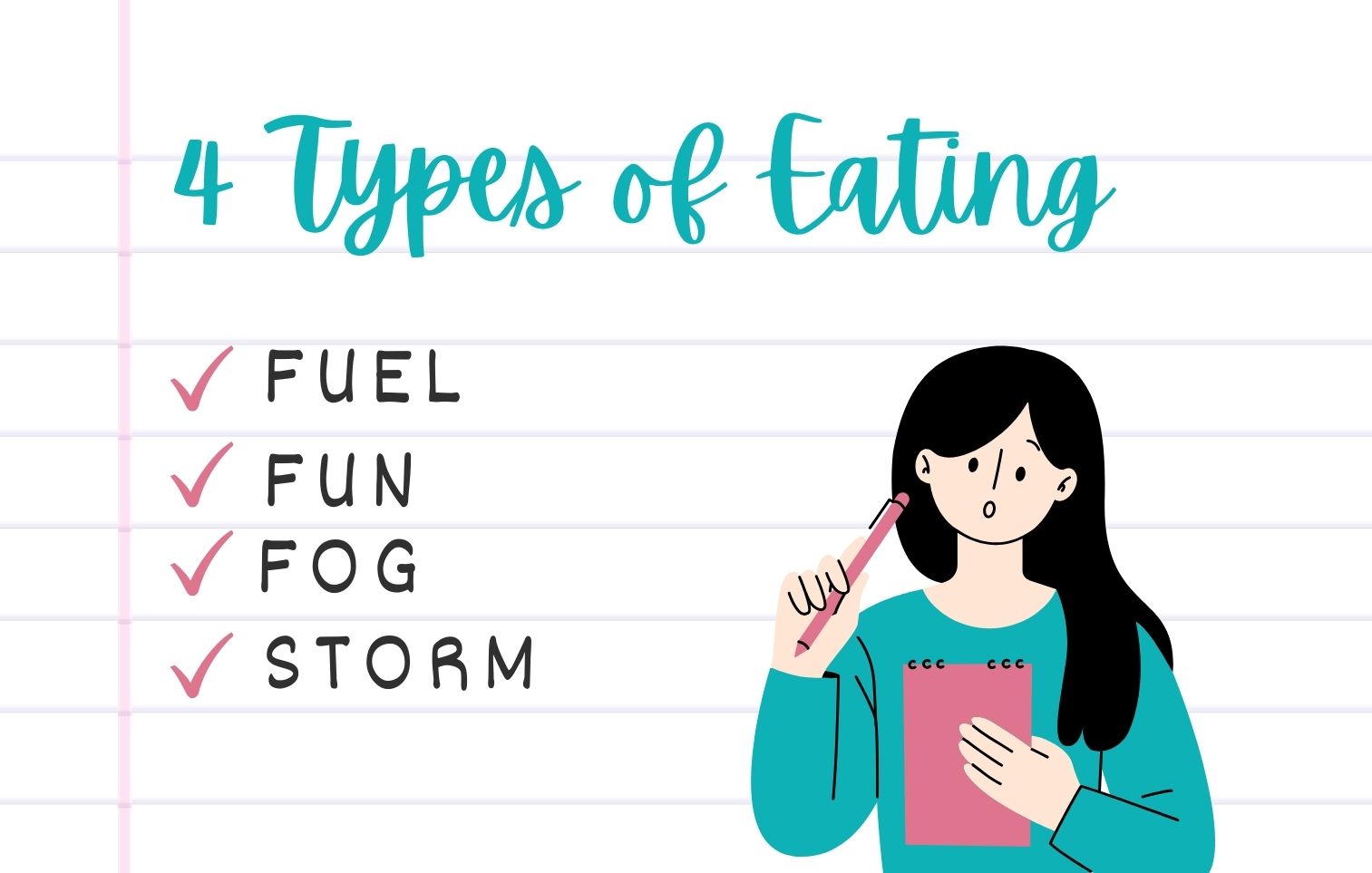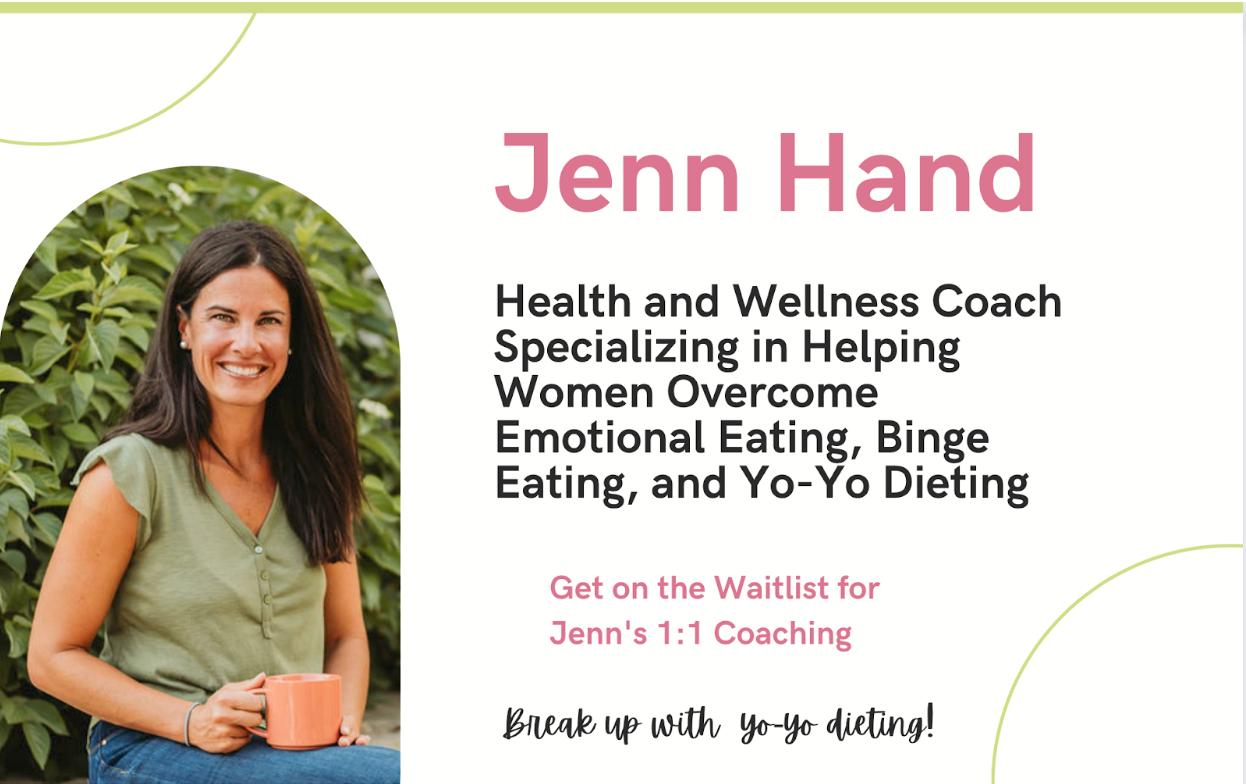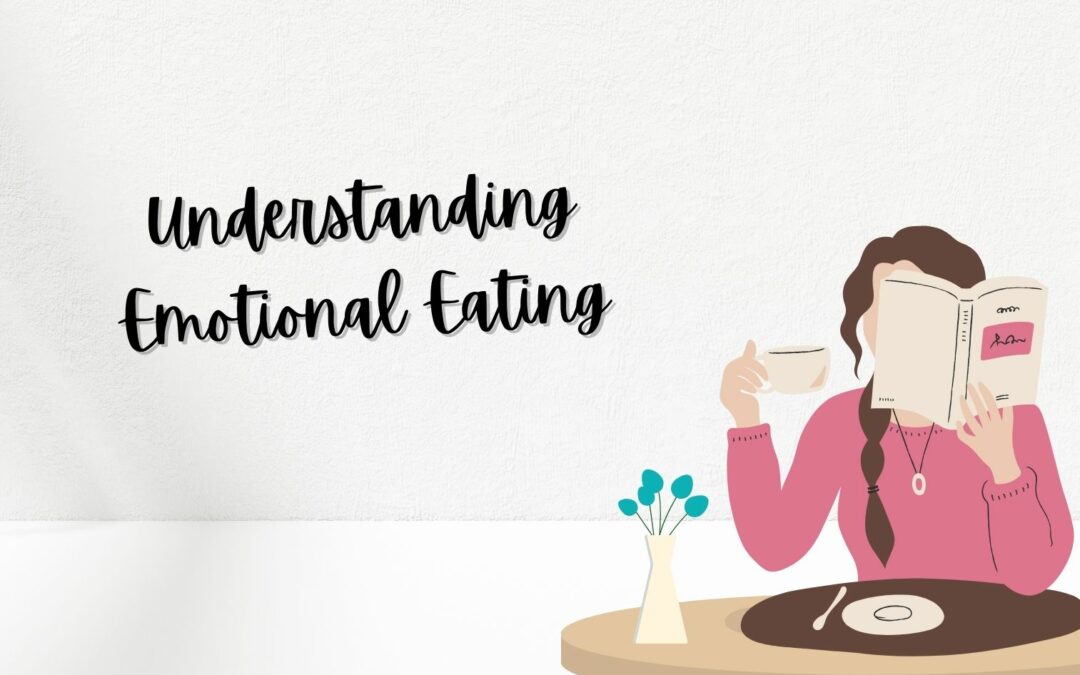Written by Jenn Hand, Holistic Nutritionist, Board Certified Health Coach, NBC-HWC
What Defines Emotional Eating?
What is an emotional eater?
Emotional eating is turning to food for other reasons besides physical hunger and to soothe, distract or numb out from a challenging feeling.
Emotional eaters can turn to food for a variety of reasons: comfort for heartbreak, stress relief from a day of overwhelm, reward for getting through a long list of to-dos, or relief from any other negative (or sometimes positive!) emotions.
For me, I spent most of my younger years eating in response to emotions. It wasn’t conscious at first.
It was simply an automatic habit: when I felt anxiety, uncertainty, fear, restlessness or any other emotion, I’d use food to help relieve the pain of the uncomfortable feeling. The good news is that once we begin to recognize we DO engage in this pattern, this is when we’re then able to work through it to change the habit. If you’re feel stuck and you want to stop emotional eating, I recommend you get in touch with me to schedule a 20-minute discovery call and find out more about coaching.
What defines psychological eating?
Psychological eating is a lesser known term for emotional eating. This can be a more clinical term, but it refers to people who eat to cope with boredom, anxiety, stress, fear or other difficult emotions (aka emotional eating!)
What are the 4 types of eating?
There are four types of eating:
Fuel: This is eating to support your body’s physiological needs. Our body needs certain macronutrients to thrive and we eat in a way that supports our bodies nutritional needs.
Fun: This is eating foods for well, fun! These are things that don’t offer nutritional value but are often “fun” to eat like a slice of cake at a birthday party, ice cream on a hot summer day, chips and salsa at a tailgate or some Halloween candy post trick or treating.
Fog: This is when we eat mindlessly and aren’t fully paying attention. When we eat in a fog, we lack enjoyment and awareness and typically don’t “receive” the pleasure from eating.
Storm: This is when we feel out of control or compulsive and end up bingeing or overeating.

What is another word for emotional eating?
Some people label emotional eating more specifically like “boredom eating,” “stress eating,” or “comfort eating.” All of these fall under the umbrella of eating emotionally and I like to think of them as part of the same family. To me, it’s more important to identify the underlying reason WHY we eat rather than label it something specific.
What is the 80/20 Rule for eating and does it make sense?
The 80/20 rule states that 80% of the time, we should aim for eating nutritious foods and the other 20% of the time, we can be less nutrient conscious (aka have more treats.) This rule may resonate with some people and not for others. If you’ve spent a lifetime on and off diets, it may feel like another “rule” to follow. Aiming to fill your plate with mostly whole foods may be more of a “less structured” interpretation of the 80/20 philosophy.
Read More:
🌷What Can You Replace Emotional Eating With?
🌷How to Use Yoga to Overcome Emotional Eating
Work with a Emotional Eating & Holistic Nutrition Coach
Overcome Bingeing and Emotional Eating, and Break Up with Yo-yo Dieting
Working with a emotional eating coach and holistic nutritionist can help you get free from the frustrating binge and restrict cycle and stop yo-yo dieting.
You don’t have to be obsessed with food or have a million rules around eating to find your natural weight and learn to love your body. Ready to actually see a lasting change and experience true freedom?
Schedule a 20-min CallAbout the Author:

Jenn Hand has been helping women like you become normal eaters since 2015.
She’s worked with thousands of women, helping them to balance their bodies, end bingeing, stop obsessing over food, and start feeling amazing again. As a board-certified health coach and holistic nutritionist, Jenn knows how to support you in making real positive changes that last.
Her articles have been published on Mind Body Green, Tiny Buddha, Thrive Global and other local and global media platforms. She’s the author of How to Be a Normal Eater and the creator of The Normal Eater’s Club program. Listen to Jenn’s advice and tips on the Cake Doesn’t Count Podcast, or read more of her articles for free on the Food Freedom Blog.
Learn About Coaching!




